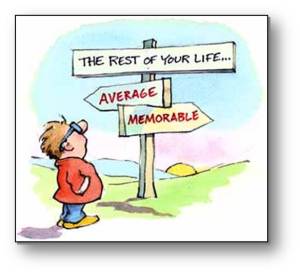IEA hosts monthly Gifted Child Parent Support Group meetings throughout the school year. These meetings are intended to provide support and community in the midst of the joys and challenges of raising a gifted child. At the May 2013 meeting, IEA President Elizabeth D. Jones presented “My Child is Gifted. Now What?” This post offers a few of the many highlights from that talk.
You know that your child is different, and you may or may not know why or how. You search for answers and find out that your child is gifted. But what does that mean? How do you accommodate your child’s needs now that you know what they are?
Identifying and Acknowledging Your Child’s Gifts
Because you as a parent know your child best and see your child the most, you are the most likely person to notice your child’s gifts. Parents usually notice signs of giftedness in the first five years of their child’s life. 50%-90% of parents are proficient at recognizing early intellectual advancement in their children. As children near the age of 5, the accuracy improves.

Giftedness is fairly evenly distributed between genders. However, more girls are identified for school gifted programs than boys. As a parent, you know your child. If you suspect that your child is gifted, do something about it.
Some are skeptical of early identification. This is often associated with the assumption that giftedness equals extraordinary achievement. As many parents pointed out at our most recent parent support group meeting, this skepticism can also be due to a parent’s fear of what “giftedness” means or a belief that the child is “weird” or “just smart.” However, signs of giftedness do appear early in gifted children, and the earlier you notice and address them, the more support your child is going to have throughout his or her childhood. This is important, as giftedness rarely evolves into achievement unless there is a combination of cognitive ability, motivation, and an enriched environment.
What You Can Do At Home
- Compliment your child for his or her abilities and efforts. Recognize real accomplishments.
- Demonstrate how to prioritize. Assist your child in learning how to pick and choose activities. Demonstrate and stress the importance of down time and balance.
- Share data relevant to your child. If a child takes an assessment, he should be told the results and what they mean. It is really important that your children understand who they are. This includes their abilities and needs as gifted kids.
- Enjoy. As challenging as it is to have a child that is different from the norm, some of the hallmarks of giftedness are a sense of humor, an excellent vocabulary, and high levels of perceptivity. No matter what your child’s level of giftedness or your school’s level of support, do your best to end most days looking at the positives and saying to yourself, “Wow! Am I ever lucky!”
The Gifted Child at School
The traditional school system can be difficult for your gifted child. If you walk into a doctor’s office, they examine you, talk to you about your symptoms, and run tests in order to diagnose you. If you walk into a school, they ask how old you are. Nothing else is taken into consideration. This is a problem when your child is outside the norm.
Just as the human body needs nourishment to survive, the gifted child’s mind needs to be fed. When gifted kids are not learning, their minds are not being fed, and they get anxious, tired, and worked up.
Highly gifted kids will typically change educational environments 3 to 4 times over the course of their K-12 education in attempts to find the right accommodations or fit between the school system and the student. When a highly gifted child is successful in a single school system, it is often thanks to acceleration.
Acceleration is an extremely viable option for students who need additional challenge in classroom. This can take several forms, including grade-skipping, single-subject acceleration, or classwork performed in more depth or at a quicker pace. Advanced online resources are also becoming a more and more viable option. If your child’s school will allow use of such resources, take them up on it.
There are a few concerns that parents and educators sometimes have with acceleration. It is important for you to know that studies show that acceleration works well and that students who have been accelerated rarely regret it. In fact, most kids who were accelerated wish they were accelerated even more. Will there be social differences between a child who was accelerated and his or her classmates? Absolutely. But many families feel the benefits of acceleration outweigh the emotional challenges that come with such a transition. These are not barriers that should stop your child from getting the education he or she needs. Acceleration is about meeting your child’s educational needs, and this is important to your child, as well.
When talking to the school about your child’s abilities and needs, bring a sample of your child’s advanced work to demonstrate the level at which your child is performing. This will resonate with teachers and administrators more than test scores – although those help, as well – and your word that your child is advanced.
Do your best to help make schoolwork challenging and interesting for your child. For many parents of gifted children, it is like pulling teeth getting their kids to do homework. Many gifted children also make silly mistakes on homework and tests because they rush through, knowing it is easy for them. Help make assignments interesting. There are unconventional ways to make your child pause, pay attention, and think, like doing multiple things at once. For example:
- Integrate movement of the body while completing the assignment. For reading assignments, draw a line on the floor of the hall with masking tape. Have your child walk the line while reading the textbook.
- If the assignment is not a linear progression, alter the order of activities in an assignment. For math problem worksheets, have your child start at the bottom of the page and work upward (or right of the page and work toward left) or make a design on the page rather than doing the normal left to right, top to bottom progression.
Everyone will see your child differently. It is important to recognize this early on. No two teachers will be the same, and you will likely have to advocate for your child’s needs often and in different ways. Most educators want to have the best interest of your child and your child’s education in mind; sometimes it is just difficult for them to understand what that means. Be patient, and be flexible.
To be notified of future IEA Gifted Child Parent Support Group meetings in the Los Angeles area, please contact us or sign up for our email newsletter and make sure to enter your zip code in the form.


